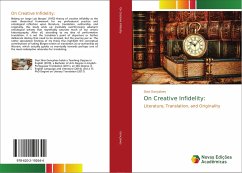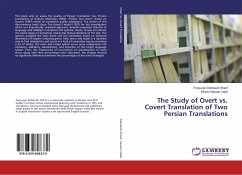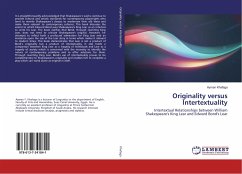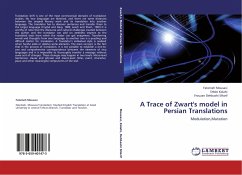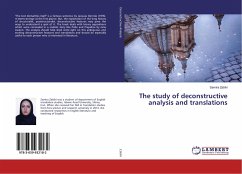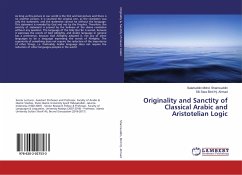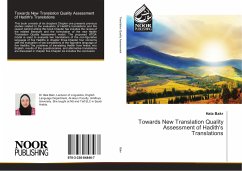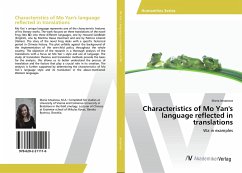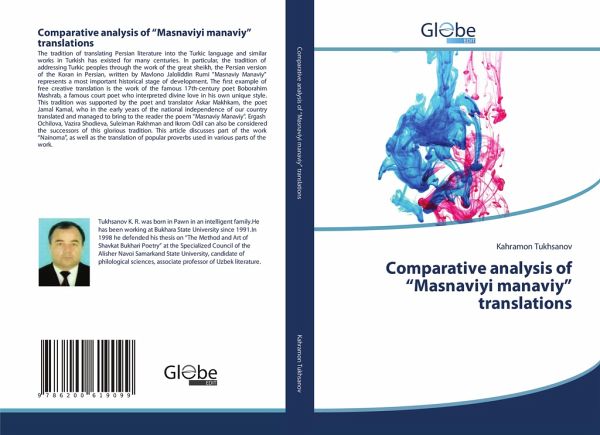
Comparative analysis of "Masnaviyi manaviy" translations
Versandkostenfrei!
Versandfertig in 6-10 Tagen
33,99 €
inkl. MwSt.

PAYBACK Punkte
17 °P sammeln!
The tradition of translating Persian literature into the Turkic language and similar works in Turkish has existed for many centuries. In particular, the tradition of addressing Turkic peoples through the work of the great sheikh, the Persian version of the Koran in Persian, written by Mavlono Jaloliddin Rumi "Masnaviy Manaviy" represents a most important historical stage of development. The first example of free creative translation is the work of the famous 17th-century poet Boborahim Mashrab, a famous court poet who interpreted divine love in his own unique style. This tradition was supporte...
The tradition of translating Persian literature into the Turkic language and similar works in Turkish has existed for many centuries. In particular, the tradition of addressing Turkic peoples through the work of the great sheikh, the Persian version of the Koran in Persian, written by Mavlono Jaloliddin Rumi "Masnaviy Manaviy" represents a most important historical stage of development. The first example of free creative translation is the work of the famous 17th-century poet Boborahim Mashrab, a famous court poet who interpreted divine love in his own unique style. This tradition was supported by the poet and translator Askar Makhkam, the poet Jamal Kamal, who in the early years of the national independence of our country translated and managed to bring to the reader the poem "Masnaviy Manaviy". Ergash Ochilova, Vazira Shodieva, Suleiman Rakhman and Ikrom Odil can also be considered the successors of this glorious tradition. This article discusses part of the work "Nainoma", as well as the translation of popular proverbs used in various parts of the work.




